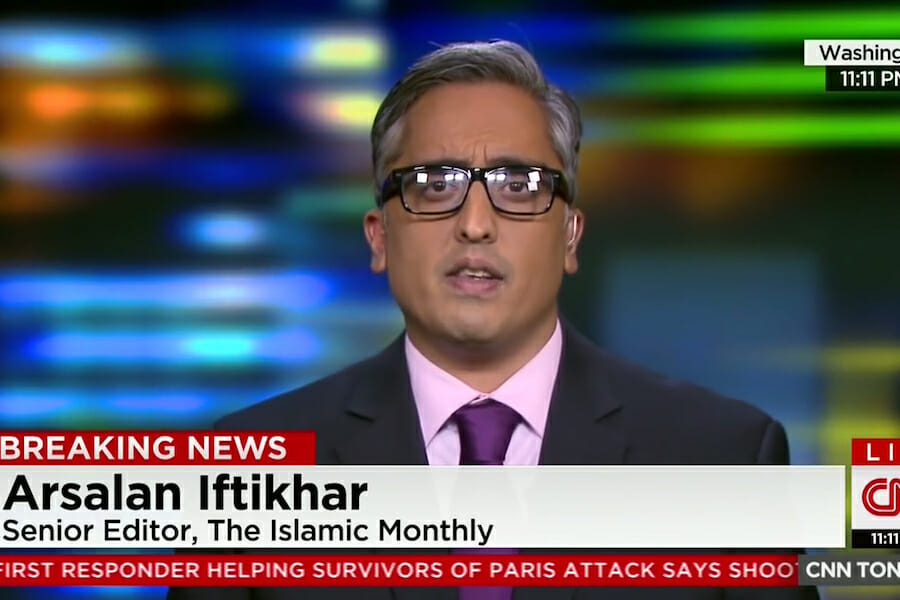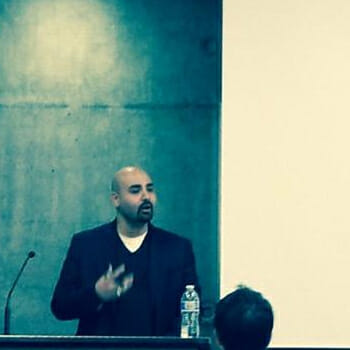
Culture
Orientalism is Thriving
We’d like to think that we’ve progressed, but the reality is that our foreign policy and the framing of our mainstream coverage of the Middle East continues to re-inscribe old imperialist notions of the “Orient.”
In 1978, Edward Said’s revolutionary book, Orientalism, challenged traditional academia’s study of the Middle East by arguing that the intellectual and cultural studies of the “orient” were interwoven with imperialist interest. He defined orientalism as a product of the imagination of the West that constructed the orient as strange, backwards, religious, and ultimately other.
While Said’s work resulted in radical changes in academia, the way the mainstream media and US foreign policy conceives of the Middle East is a continuing product of orientalism.
The tenacious endurance of orientalism is most apparent in the fixation on Islam as the fundamental motivation for terrorism. No amount of platitudes about how not all Muslims are terrorists can dethrone the reigning public discourse about Islam. When a CNN news anchor and supposed journalist like Don Lemon ask human rights lawyer, Arsalan Iftikhar, if he supported ISIS, you see a narrative taking form. A more recent example comes from Fox News where the hosts of “Fox and Friends” criticized a high school world history program for students writing and learning about Islam. In the segment they reduce Islam to Sharia Law which they ignorantly interpret as being “killed for criticizing the Qur’an” or being “killed for marrying a non-Muslim.”
Then there is the folksy adage regurgitated by so-called experts as a truism of “Not all Muslims are terrorists, but all terrorists are Muslim.” And how can one forget the double standard of holding all Muslims accountable for the acts of a minority. When some Muslims commit acts of terror, people demand that all Muslims denounce the attacks. Never mind that Muslims have been publically denouncing acts of terror all along, I have yet to see an American Christian pastor apologize for the actions of the Westboro Baptists Church, or the Lord’s Resistance Army.
Each of these are examples of an unassailable framework that continues to guide and inform the discourse about the Middle East. An essential part of the “othering” that happens with orientalism is the juxtaposition of the “West” as a realm of rationalism and reason against the “Orient” as a place of superstition and religion. This is the way we talk about terrorism.
Public discussion and debate does not see terrorists as people who happen to be Muslims, but specifically “Islamic terrorists.” The US public is entirely mesmerized about the religious dimension of terrorism. So-called experts and analysts pour over the Qur’an trying to decipher its theology as if by decoding its verses they will unlock the secret logic behind violent extremism.
In the mind of the US public and its agents, Islam remains the primary justification for terrorism. It is an assumption that focuses on religion and with which scholars have to consistently contend. This assumption is a continuation of orientalism that haunts us to this day; a specter of old imperialism that nurtures and fosters a new imperialism.
The cultural logic of orientalism isn’t merely an intellectual construct, but one that has decidedly devastating effects on real-world policy. There are two apparent results of this framework of thinking. Firstly, it is a map that leads to war. We’ve seen it before and history testifies to it.
When Ernest Renan, one of the leading figures of orientalism in the 19th century, argued that the “Muslim was a victim of their own religion” or that the people of the orient were constrained by an “iron ring” around their heads that kept them from logic and learning, it was a prelude and justification to war. Knowledge and power inform one another in intimate ways and knowledge of the orient quickly leads to an intellectual and imperial domination.
It is also a framework that divides the world into us and them. Despite how many times Muslims are told that the US is not at war with Islam, such reassurances ring hallow when after amelioration a finger is jabbed at their religion as the source of violence. It may be uncomfortable to admit for many, but for Muslims, the US is very much at war with Islam and they wouldn’t be too far off the mark.
The second disastrous effect of the orientalist framing of terrorism is that its fixation on religion dismisses social, political, and economic causes of the phenomenon. Robert Pape of the University of Chicago studied every known case of terrorism for over two decades and concluded there was little to no link between suicide terrorism and Islamic fundamentalism. This means that so long as our public debate in the United States continues to fix its gaze on religion as the primary cause, it will be ignoring all else—an irredeemably stupid tactic.
I do not propose that there is no religious ideology behind extremist violence, but rather the simplistic and myopic orientalist framing is not only incorrect, but crippling.
The underlying cultural logic of orientalism that guides the discussion cannot fathom that terrorists might have reasons and logic of their own. In the current discourse, they are merely violent manifestations of an atavistic ideology. Never mind that both Al Qaeda and ISIS/ISIL have very clearly defined their political goals and published mission statements that read like political manifestos rather than religious declarations.
What is insidious about the current framework by which the public understands terrorism is that it is unassailably hegemonic and surreptitiously implies an understanding of the whole of the Middle East. This framework places a foreign and little-known religion as the cornerstone of understanding the enemy, the violent extremist is just one part of the equation, for in the thinking of the orientalist it is all of Islam and therefore the Middle East is “Other.”
The “Other” was and will always be the perfect canvas upon which to project fear and ignorance and to subjugate. It also ensures that the US will never understand and therefore deal with terrorism. As the US continues to hunt for clues in religious texts while dropping bombs, it is blind to the political war that terrorists are fighting and unfortunately winning.

